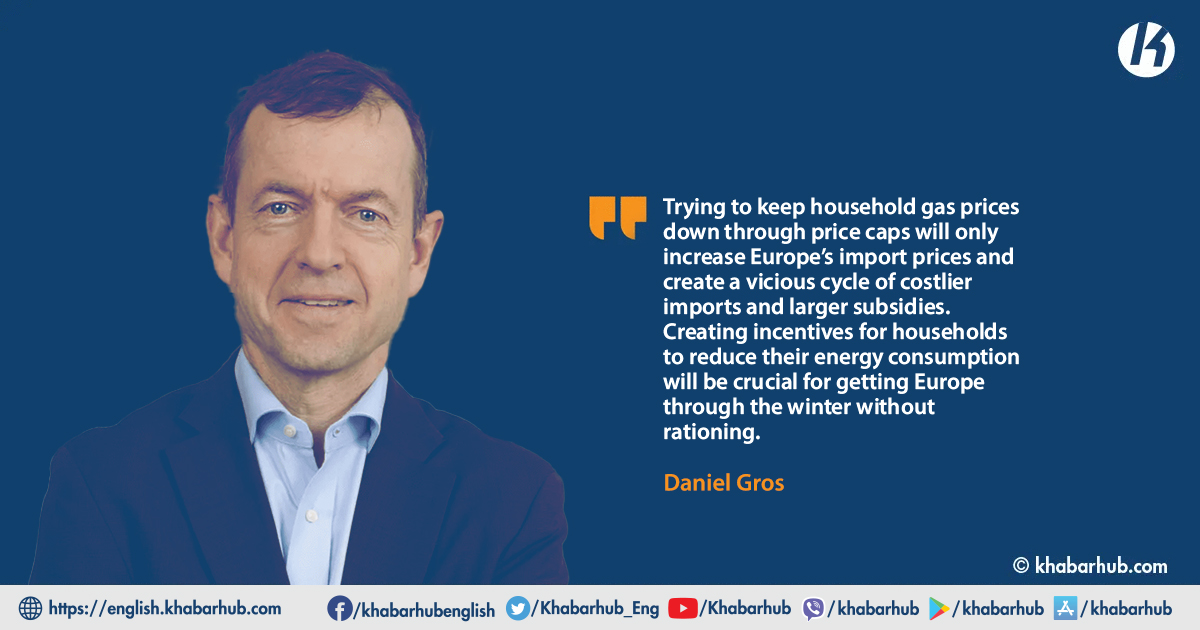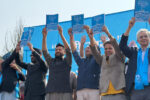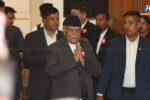Over the last few months, gas and electricity prices in Europe surged by nearly 100% to unprecedented levels, then fell by a third, and have now soared again since Russia announced that operation of Nord Stream 1, its gas pipeline to Germany, would remain suspended indefinitely.
Many European leaders have reacted to the wild swings in Europe’s energy exchanges by blaming markets. But shooting the messenger is never the right approach.
For European policymakers, energy markets’ extreme volatility proves that these markets are no longer rational. In fact, natural gas is becoming a scarce good, and energy prices are simply responding accordingly.
Russia’s suspension of Nord Stream I was not unexpected, given that European gas storage levels are increasing rapidly, and Russian President Vladimir Putin knows that he will lose his geopolitical leverage if Europe is prepared for winter without Russian gas.
The scale of the problem is immense. Before it invaded Ukraine, Russia met about 30% of Europe’s gas needs. Since February, European countries have been forced to compensate for this loss through energy savings and imports from alternative sources.
On the savings front, Europe’s record so far has been a mixed bag. The high price of gas has already led industry to cut back and use alternative fuels or reduce production, with German companies using 20% less gas in June compared to last year.
Asian price caps result in higher import prices for Europe, which then lead European policymakers to increase the subsidies to keep consumer prices down, potentially setting in motion a vicious cycle of increasingly higher spot prices and larger subsidies.
But the biggest gas users during the winter months will be households – and as the weather gets colder, it will be difficult to convince people to cut back on heating their homes.
European governments are already imploring consumers to turn down the thermostats and take fewer hot showers. But such appeals are likely to have little impact, and tightening rules for public buildings is expected to produce similarly small savings.
Ensuring that households recognize gas scarcity will be crucial for getting Europe through the winter without having to resort to rationing. This will not be easy.
On average, household gas prices have doubled since August 2021, but many consumers have not noticed this fully yet, because they use much less gas during the summer months and pay fixed monthly amounts that will be revised upward only later. Yet rising energy prices are already fueling massive protests across the continent.
In the face of growing political pressure, several EU member states have introduced subsidies to reduce consumer prices. France has capped gas and electricity prices, and Italy has lowered the value-added tax rate for natural gas. As a result, household gas prices declined by 15% in Italy and remained stable in France, even as they rose by roughly 20% in Germany.
The fiscal cost of energy subsidies will be enormous, amounting to dozens of billions of euros in the larger EU countries. But that’s not the worst of it.
These price subsidies will cause demand for gas to fall less than it otherwise would: Consumers who pay less for gas will be less inclined to turn down the heating or take fewer and shorter hot showers.
Europe will have to import more gas than it would have done if consumers had been forced, through higher energy prices, to recognize scarcity.
More to the point, where do European leaders think they will obtain the additional gas? Most gas producers are already working at peak capacity and will be unable to increase their output in the next few months.
The only potential source of additional supply is liquefied natural gas diverted from Asia. But higher import demand from Europe will put even more pressure on global LNG prices, thus increasing Europe’s import bill.
The complicating factor is that European countries are not the only ones trying to protect consumers from high gas prices. Several major Asian importers, such as Japan and South Korea, also cap household prices.
Instead, European leaders could use limited financial resources to create incentives for households to save – and make it easier for Europe to end its reliance on Russian gas.
This might be one of the reasons why Asian gas demand has fallen only slightly so far, and why spot gas prices were high even before Russia’s war in Ukraine.
Asian price caps result in higher import prices for Europe, which then lead European policymakers to increase the subsidies to keep consumer prices down, potentially setting in motion a vicious cycle of increasingly higher spot prices and larger subsidies.
And prices may rise anyway, owing to the enormous impact that EU-wide subsidies would have on global prices.
There is a better way. Instead of subsidizing consumption through price caps, European governments should subsidize gas savings.
For example, they could pay households to reduce their consumption this winter. This would also involve fiscal expenditure, but recent analysis suggests that such subsidies would mostly pay for themselves through lower import prices.
Alternatively, policymakers could encourage energy savings by offering households a limited price cap. Under this scheme, subsidies would cover a basic amount per capita, with households paying the market price for consumption above this level.
Either way, European policymakers would need to explain to their electorates that gas has become very scarce, that shielding them completely from higher prices is impossible, and that attempting to do so would be highly counterproductive.
Instead, European leaders could use limited financial resources to create incentives for households to save – and make it easier for Europe to end its reliance on Russian gas.
(Daniel Gros is a member of the board and a distinguished fellow at the Centre for European Policy Studies)
Copyright: Project Syndicate








Comment